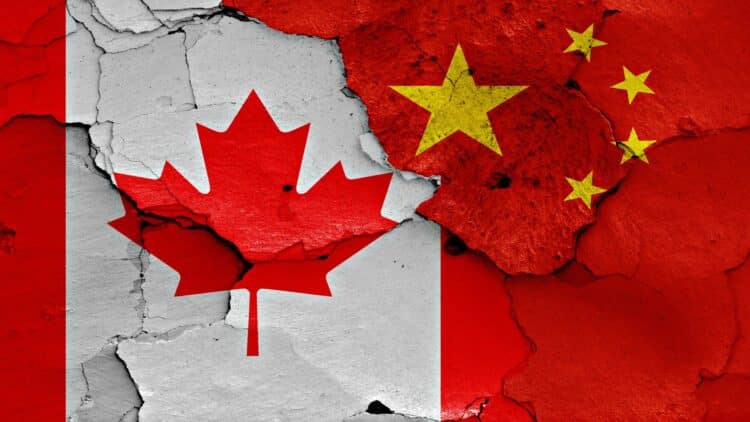By Kanishka Singh and Ismail Shakil
OTTAWA, June 28 (Reuters)
The recent order issued by Canada to a Chinese manufacturer of surveillance camera Hikvision to stop operating has been an important step by the country on its national security and foreign aspects of technology. This has been the case in view of the increasing international concern over Chinese technology companies and their presence in critical infrastructure. Hikvision is banned in Canada as it is included in a list of allies, such as the United States and Australia, that are limiting the product, which shows the relevance of cybersecurity and human rights in government policymaking. Already, the shutdown order has registered strongly both on the part of the company and the Chinese authorities, and it is expected to continue putting up some diplomatic and legal obstacles.
Canada’s national security decision
The Canadian government has ordered the Chinese surveillance camera manufacturer Hikvision 002415.SZ to cease operations in Canada over national security concerns, Industry Minister Melanie Joly said late on Friday.
Hikvision, also known as Hangzhou Hikvision Digital Technology Co, has faced numerous sanctions and restrictions by Canada’s neighbor, the United States, over the past five and a half years for the firm’s dealings and the use of its equipment in China’s Xinjiang region, where rights groups have documented abuses against the Uyghur population and other Muslim communities.
“The government has determined that Hikvision Canada Inc’s continued operations in Canada would be injurious to Canada’s national security,” Joly said on X, adding that the decision was taken after a multi-step review of information provided by Canada’s security and intelligence community.
Her statement did not mention China or Xinjiang or specify how Hikvision would harm Canada’s national security.
Company and diplomatic response
“We strongly disagree with this decision and view it with deep concern, as we believe it lacks a factual basis, procedural fairness, and transparency,” a Hikvision spokesperson told Reuters.
“Instead of evaluating our technology on its cybersecurity merits, the decision appears to be driven by the parent company’s country of origin, reflecting broader geopolitical tensions and an unjustified bias against Chinese companies.”
The spokesperson said the company “urges the Canadian government to base its actions on facts rather than prejudice, and to uphold a fair, transparent environment for all businesses and investors.”
China’s foreign ministry did not immediately respond to requests for comment.
Broader context and industry impact
The company, which describes itself as the world’s biggest maker of video surveillance equipment, said last year it had exited contracts in Xinjiang through five subsidiaries that were added to a U.S. trade blacklist in 2023.
The Chinese government has denied all allegations of human rights abuses in Xinjiang and has criticized or targeted companies for removing Xinjiang firms from their supply chains.
Canada said last year it was reviewing an application to impose sanctions against Chinese surveillance equipment companies, including Hikvision, after rights advocates alleged the firms were aiding repression and high-tech surveillance in Xinjiang.
Joly said Canada was also banning the purchase of Hikvision’s products in government departments and agencies, and reviewing existing properties to ensure that legacy Hikvision products were not used in the future.
She said the order does not extend to the company’s affiliate operations outside Canada, but “strongly” encouraged Canadians to take note of this decision and make their own decisions accordingly.”
The fact that Canada has decided to kick out Hikvision reiterates the fact that the nation takes its security, as well as human rights, seriously, despite the possible backlash it would get. The case in question is bound to affect the future policy regarding foreign technologies and surveillance, as its results are being monitored by many other countries. The controversy on the idea where security is balanced among the terms of trade and human rights will continue to bring changes in the international technology environment, with Canada as a demonstrator to other allies and competitors.

